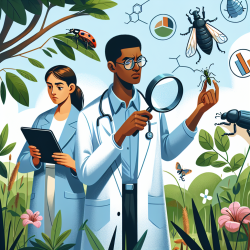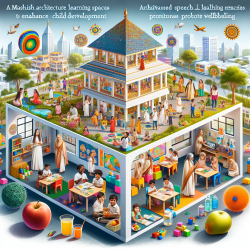The field of citizen science is rapidly evolving, offering unique opportunities for practitioners to enhance their skills and contribute to meaningful scientific research. A recent study titled "In Their Own Words: The Significance of Participant Perceptions in Assessing Entomology Citizen Science Learning Outcomes Using a Mixed Methods Approach" provides valuable insights into how mixed methods research can be leveraged to improve educational outcomes and foster a deeper connection with nature.
The Value of Mixed Methods Research
Mixed methods research combines quantitative and qualitative data to provide a comprehensive understanding of a phenomenon. In the context of citizen science, this approach allows researchers to capture both statistical trends and personal experiences, offering a richer insight than either method alone. This study highlights the importance of integrating participant perceptions with test scores to assess the impact of entomology citizen science programs on various constructs such as science self-efficacy, self-efficacy for environmental action, nature relatedness, and attitudes towards insects.
Key Findings and Implications for Practitioners
- Science Self-Efficacy: While quantitative data showed no statistically significant changes in science self-efficacy among participants, qualitative interviews revealed that many perceived an increase in their confidence to engage with scientific tasks. Practitioners can use this insight to design programs that emphasize participant perceptions and provide constructive feedback to enhance self-efficacy.
- Self-Efficacy for Environmental Action: Participants who engaged in citizen science projects reported a heightened sense of efficacy in addressing environmental concerns. This suggests that practitioners should highlight the environmental impact of their projects to motivate continued participation and engagement.
- Nature Relatedness: The study found that participants often had pre-existing interests in the natural world. However, citizen science programs provided an outlet for these interests and increased awareness of specific insect species. Practitioners should consider incorporating elements that connect participants more deeply with nature.
- Attitudes Towards Insects: Although statistical data did not show significant changes, interviews indicated a positive shift in attitudes towards insects among participants. Practitioners can leverage this finding by designing activities that foster positive interactions with insects and raise awareness about their ecological importance.
Encouraging Further Research
This study underscores the potential of mixed methods research to uncover nuanced impacts of citizen science programs. Practitioners are encouraged to adopt similar approaches in their evaluations to gain deeper insights into participant experiences and program effectiveness. By doing so, they can develop more targeted interventions that enhance educational outcomes and foster a lifelong commitment to scientific inquiry.
To read the original research paper, please follow this link: In Their Own Words: The Significance of Participant Perceptions in Assessing Entomology Citizen Science Learning Outcomes Using a Mixed Methods Approach.










